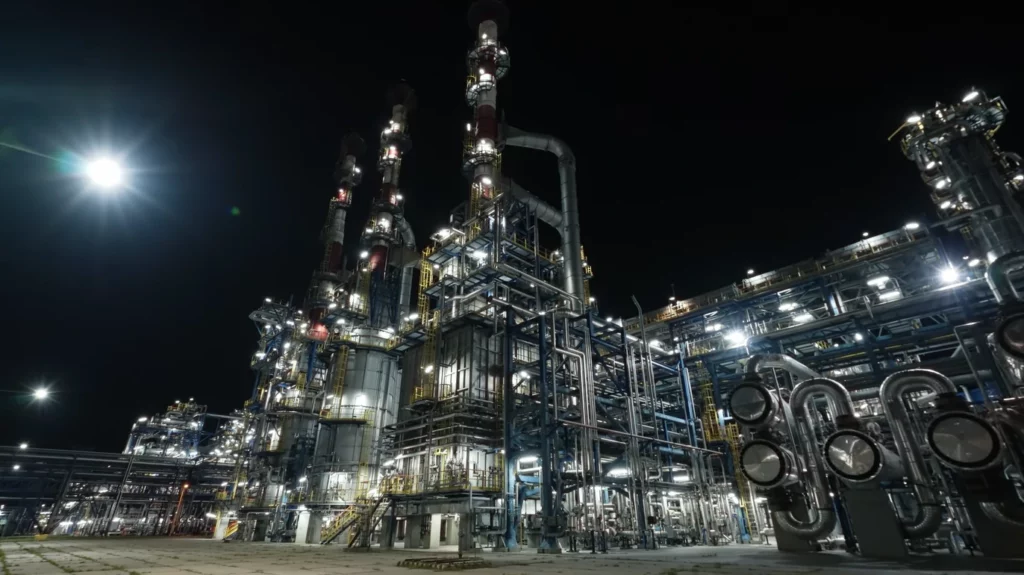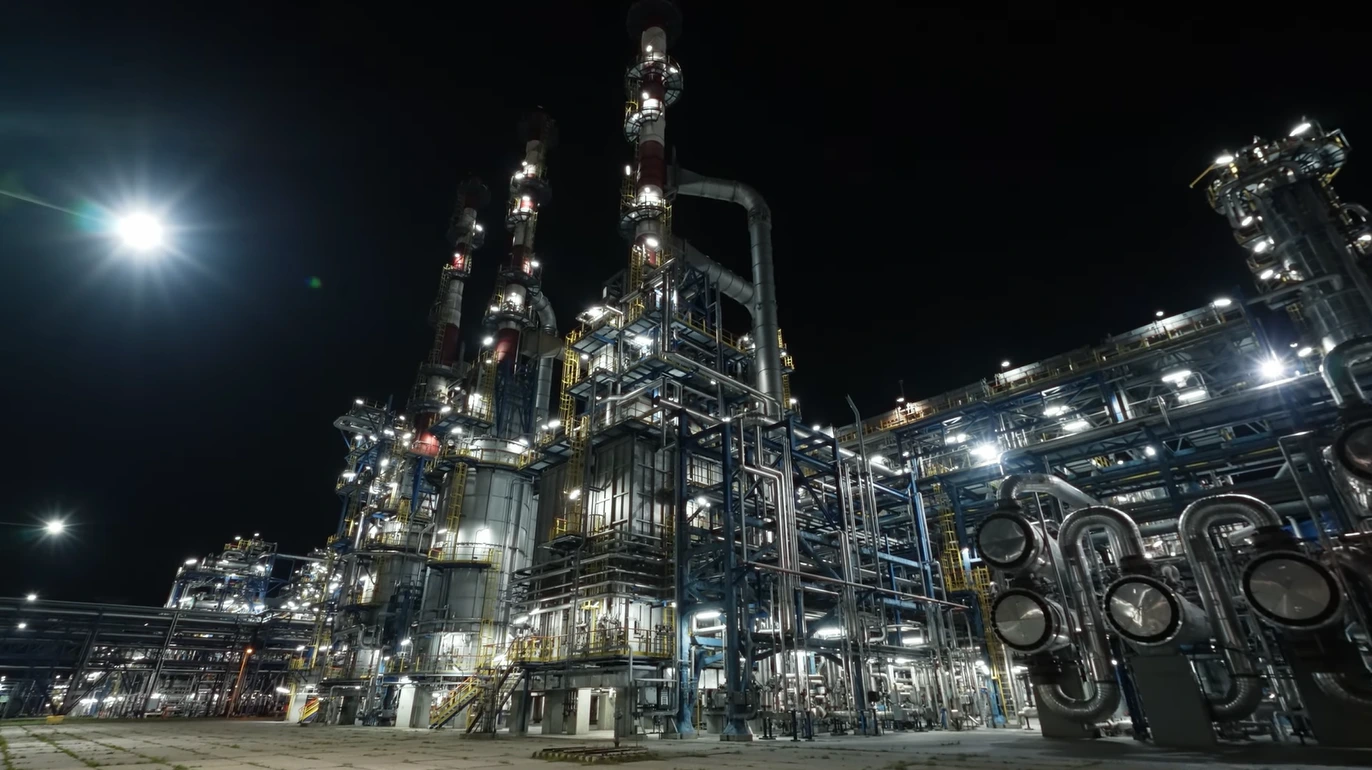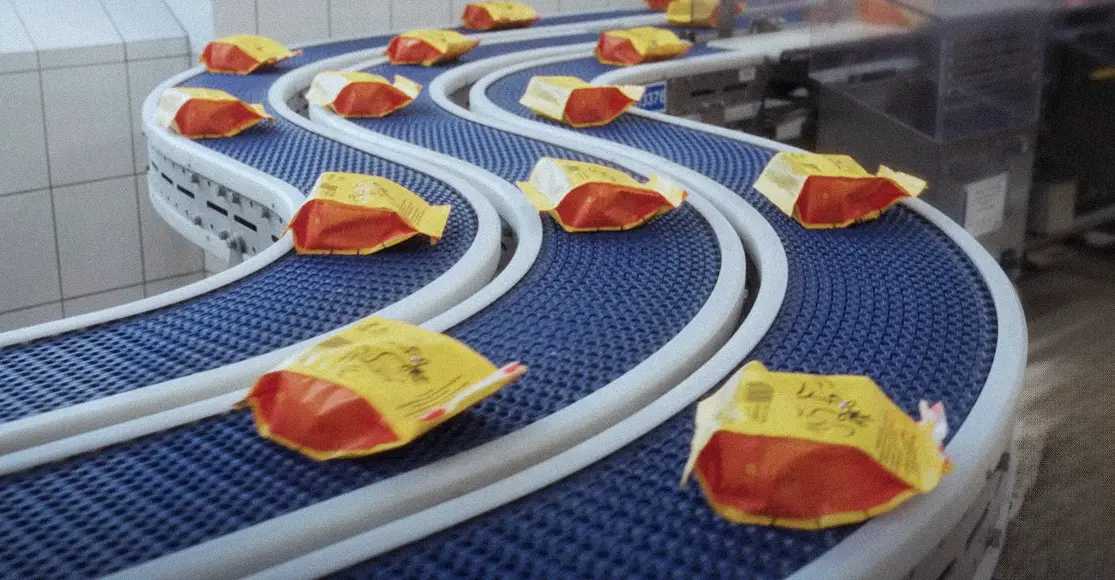
ADMA Scan: Evaluate the Digital Maturity of Your Business
Polish companies are aware that adopting new technologies is essential for staying competitive and aligning with European and global standards set by the Industry 4.0 vision. However, Digital Transformation is a complex process requiring significant investments of time, labor, and money. To succeed, it must be well-planned and carefully thought through.
A good starting point to logically organize this process is the ADMA Scan. It helps establish where we are standing, which is the fundamental matter to address before making any investment decisions.
The Advanced Manufacturing (ADMA) Scan, also known as the Industry 4.0 Diagnosis, was developed in 2018 by the European Commission to help companies adopt advanced manufacturing technologies. It evaluates the digital maturity of a surveyed company and is successfully used across the EU in various manufacturing industries.
The ADMA methodology consists of three key steps. First, a scan is conducted to assess the company’s current state. Then, a transformation plan is developed, and finally, selected initiatives are implemented.
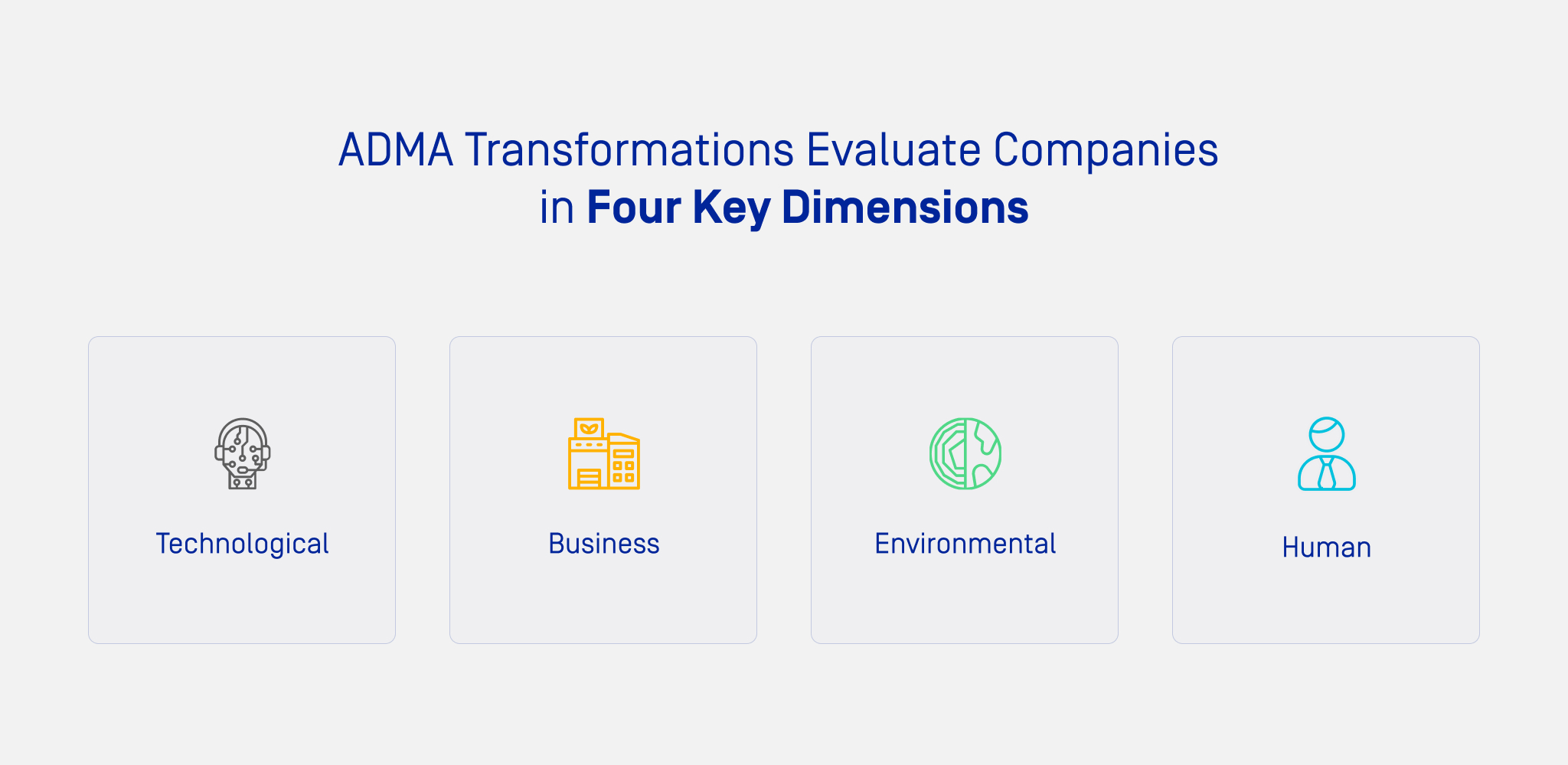
ADMA evaluates digital maturity in seven critical areas, called ADMA Transformations. These areas measure a company’s potential regarding technologies and initiatives, guiding it towards becoming the Factory of the Future. Each area is evaluated across four main dimensions: technological, business, environmental, and human. All seven transformations are equally important, and no single area is more or less significant than the others. These are:
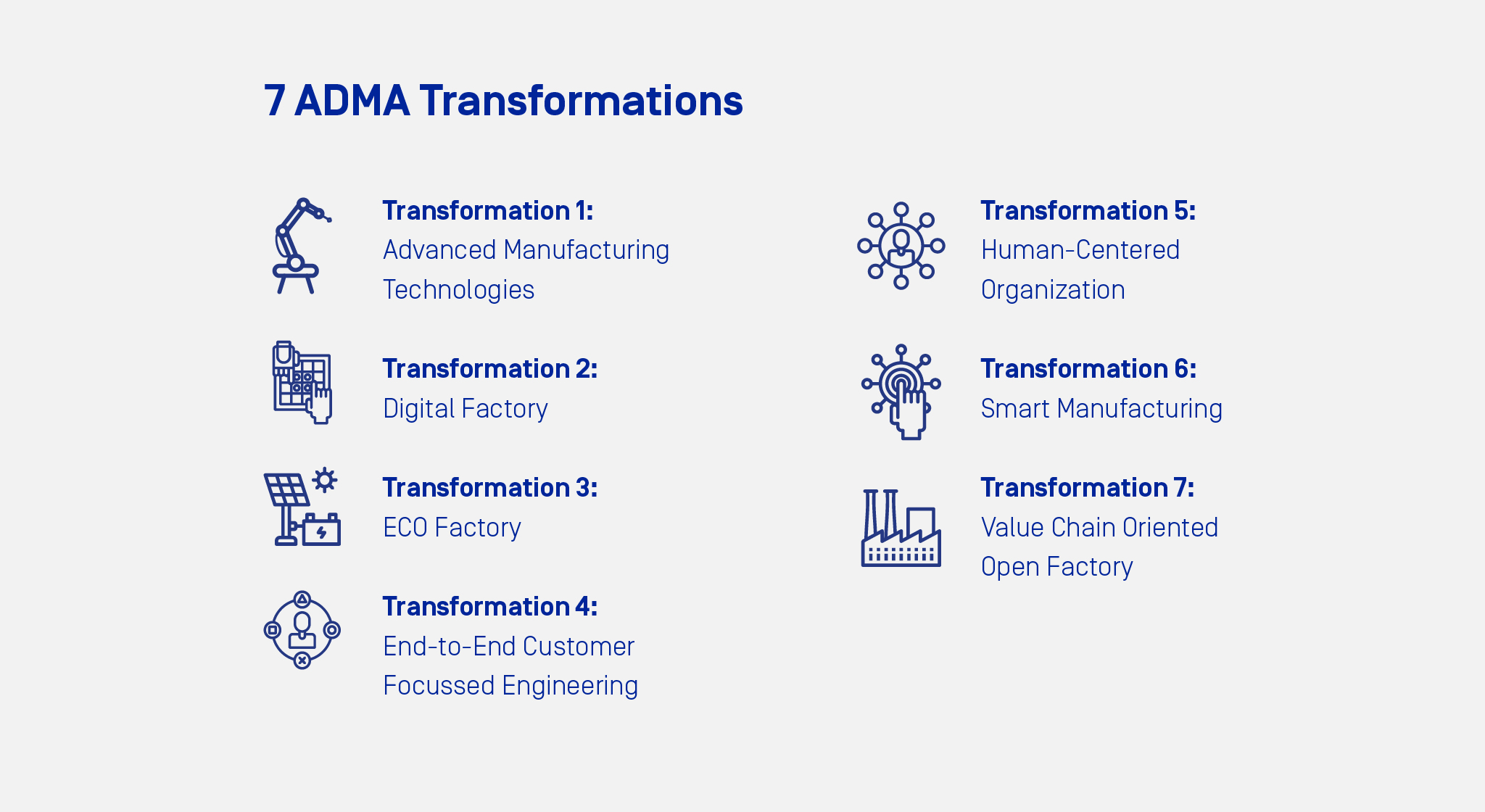
Transformation 1. Advanced Manufacturing Technologies focuses on equipping the machinery with modern production equipment, often designed and built in-house.
Transformation 2. Digital Factory emphasizes the use of digital technologies, coherent and reliable data collection, and system integration.
Transformation 3. ECO Factory encompasses initiatives aimed at reducing the factory’s negative impact on the environment. It emphasizes sustainability, circular economy, and renewable energy sources.
Transformation 4. End-to-End Customer Focused Engineering centers around customer needs as the primary driver of processes and organizational development.
Transformation 5. Human-Centered Organization highlights the development of employees and strives to engage them in the company’s operations.
Transformation 6. Smart Manufacturing leverages the potential of machines, people, and systems to boost efficiency and flexibility in production processes.
Transformation 7. Value Chain Oriented Open Factory encourages the exchange of knowledge and skills within the networks of like-minded companies, aiming to create modern solutions together. Collaboration with academia and other institutions, as well as openness to customers and suppliers, is an equally vital aspect.
The main objective of the ADMA Scan is to assess a company’s digital maturity. But what does that mean? Digital maturity can be defined as an organization’s readiness to implement and effectively use digital technologies to enhance advanced manufacturing and competitive advantage. The ADMA methodology helps determine how prepared a company is to face these challenges.
By assessing seven key areas, the scan reveals where the company is on its journey toward Industry 4.0. ADMA distinguishes five levels of digital maturity:
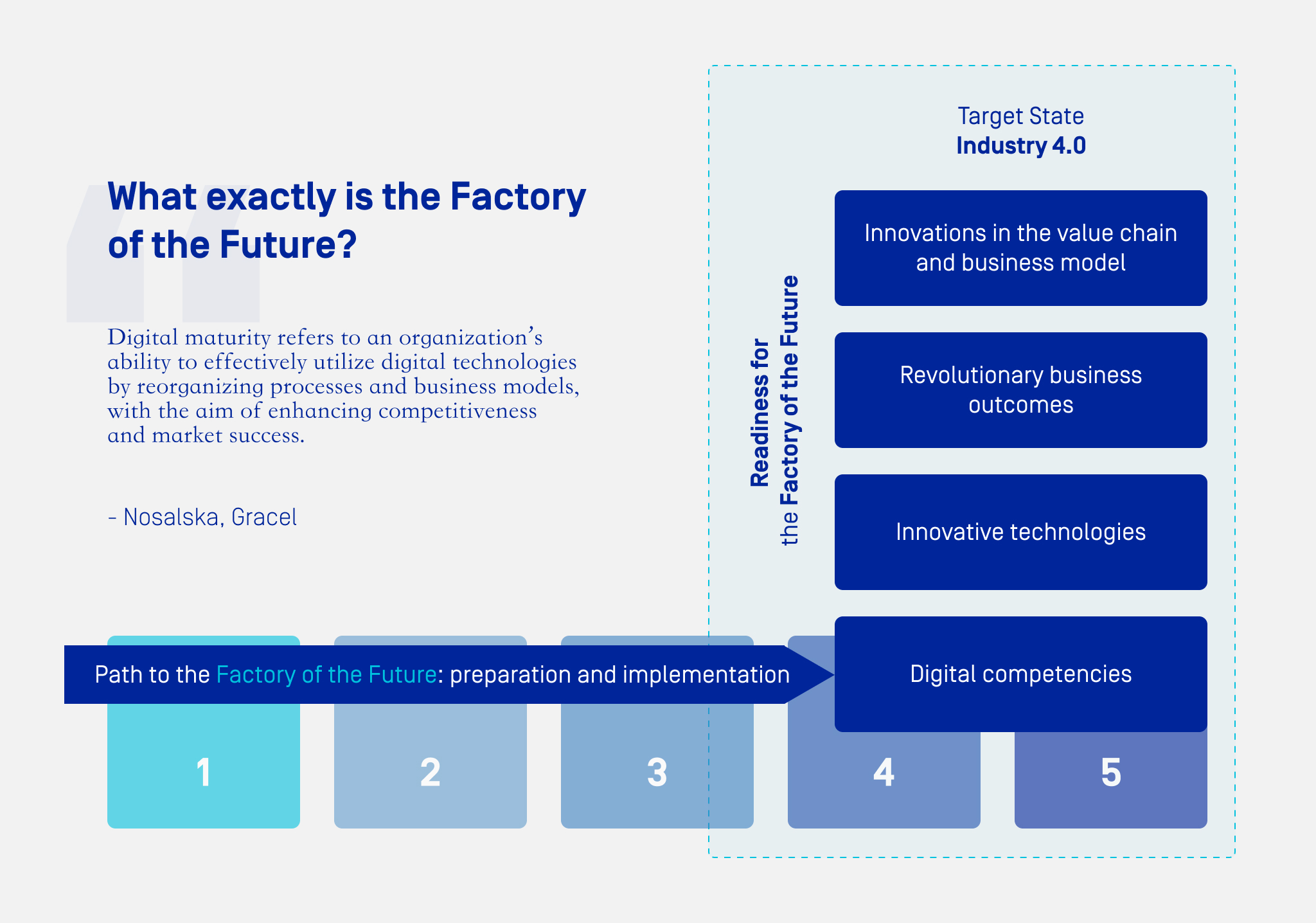
- Very basic level of digitalization
- Basic level of digitalization (halfway to the Factory of the Future)
- Intermediate level
- Factory of the Future 4.0 level
- Self-improving Factory of the Future
Knowing where a company stands helps identify how much work and resources are needed to become more modern and competitive. Additionally, companies can compare their results with others in Poland and Europe, as well as across different contexts such as industry or workforce size.
By reflecting the company’s current situation, the ADMA Scan provides a solid foundation for identifying areas with potential for development into the Factory of the Future.
The ADMA Scan takes the form of a detailed survey taking about 1.5 to 2 hours. Each question offers five multiple-choice answers, and the survey should be filled out by selected employees – preferably leaders in key areas of the company, such as the plant director, maintenance manager, production manager, IT manager, supply chain manager, sales, or HR.
For the survey to be reliable, it should be completed independently by 5 to 7 employees. While the responses are not anonymous, any discrepancies are confronted and discussed to determine the actual state of the company. However, the data remains within the company.
The ADMA survey helps the company evaluate itself. Its outcome is the Preliminary Report, offering a clear view of the company’s progress toward the Factory of the Future. It highlights the results in seven transformation areas and compares them with other participating companies.
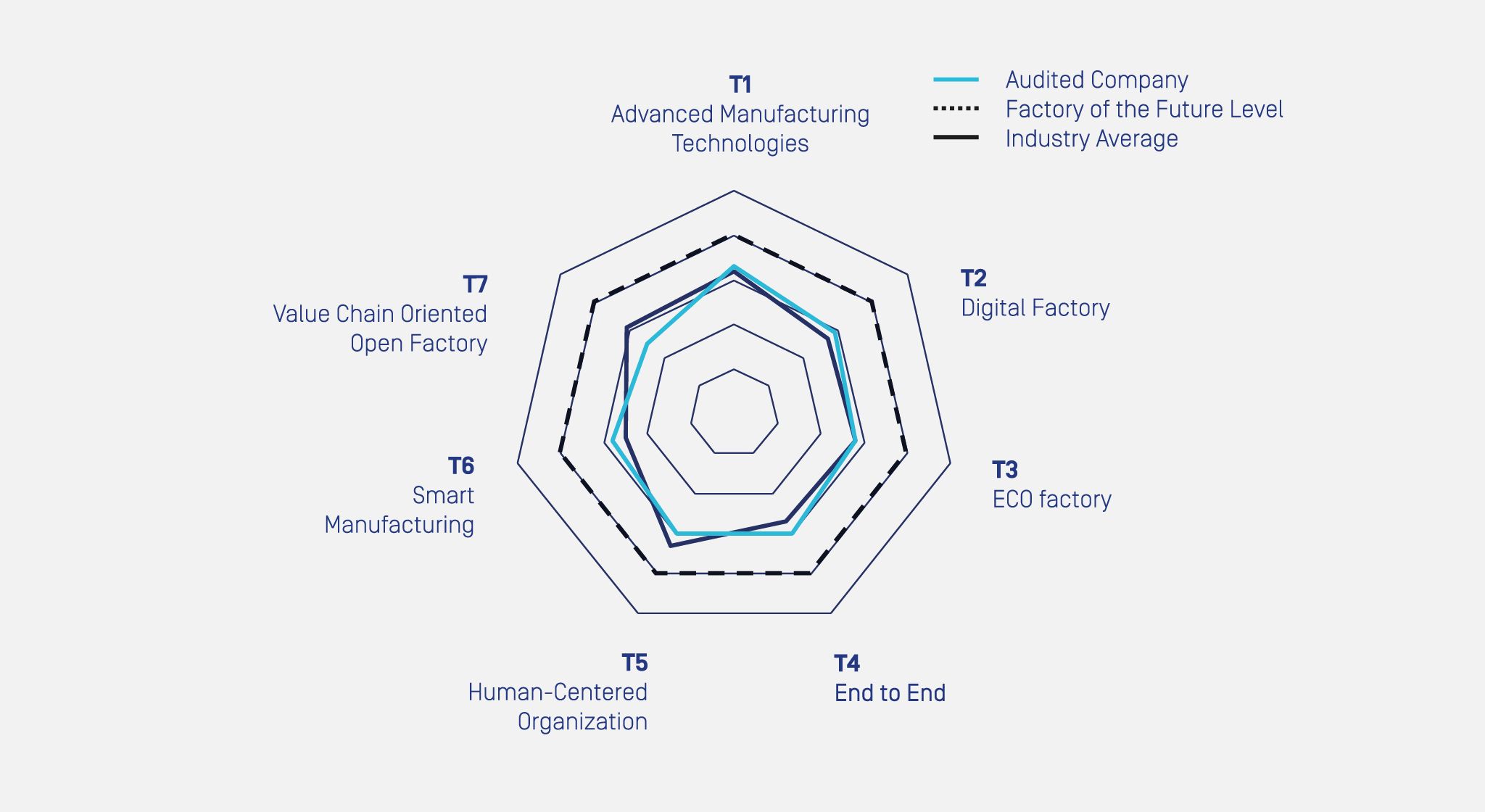
In the following steps, ADMA experts conduct an external audit of the facility, observing production processes and interviewing employees. Then, based on their observations and the preliminary report, the experts work with company representatives to assess the current state. This assessment forms the foundation for developing a Transformation Plan and implementing selected solutions.
It should be emphasized that the ADMA audit does not focus on identifying what is done right or wrong. Similarly, there are no right or wrong answers in the survey. The Scan is entirely subjective, aimed at identifying areas with the greatest potential for change.
Why is it worth starting the Digital Transformation with the ADMA Scan? There key benefits include:
- Realistic Goals: By discovering the current state and capabilities of the company, the ADMA Scan helps establish achievable goals that are aligned with its potential.
- Successful Strategy: Diagnosing key areas allows the ADMA Scan to highlight the greatest potential for improvement, enabling companies to prioritize efforts and create an effective strategy.
- Cost Savings: By knowing the company’s capabilities and needs, companies avoid unnecessary expenses, saving time and labor.
- Targeted Investments: Investments planned based on the ADMA Scan are well-suited to the company’s current needs, delivering tangible benefits.
- A Clear Path to Industry 4.0: The ADMA Scan forms an excellent foundation for developing the Digital Transformation Roadmap and its integral part, guiding companies through the process of digital transformation in a clear and transparent way.
Learn more about Digital Transformation Roadmaps in our article: Factory Tailored to Industry 4.0: How to Reach It with the Digital Transformation Roadmap?
The Advanced Manufacturing Scan is an effective tool that identifies areas with potential for growth in manufacturing companies. It helps transform facilities into modern factories tailored to Industry 4.0, enhancing efficiency and competitiveness, while fostering a workplace that is friendly to its employees and the environment.

At ImFactory, he also acts as a Project Manager and consultant. He is responsible for shaping the vision for the development of IT systems in production environments. He supports companies in assessing their digital maturity and helps them plan their digital transformation.
A graduate of the Gdańsk University of Technology, he completed a degree in Automation and Robotics and completed postgraduate Lean Six Sigma Black Belt studies. He is the author of numerous publications under the #EffectiveDigitization banner. He shares his knowledge on production efficiency, digital transformation, MES/MOM systems, and digitalization roadmaps.
He combines technical knowledge with an understanding of business processes, effectively supporting companies on their journey to the Digital Factory.
Michał Zieliński’s articles and webinars are available in the ImFactory Knowledge Base.
See also
Want to learn more? Visit our Knowledge Base, where you'll find articles and webinars by experts to expand your knowledge.
Check if Digital Transformation is the Answer to Your Company's Needs


























